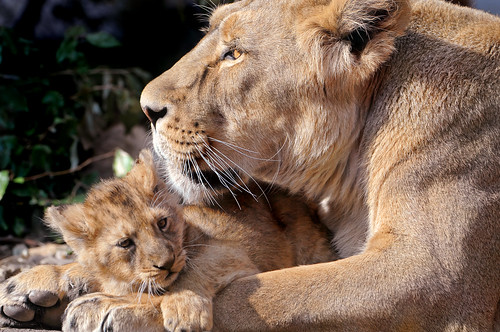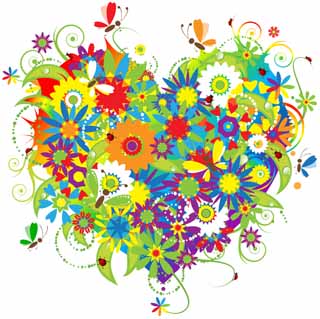
By Mary Jaksch
A friend is one to whom one may pour out all the contents of one’s heart, chaff and grain together, knowing that the gentlest of hands will take and sift it, keep what is worth keeping and with a breath of kindness blow the rest away.
~ Arabian Proverb
Maybe you thought that friendship can’t be bought. Wrong. You can buy 3000 Facebook friends for only 14,6 cents a piece from Usocial.com. Twitter friends are even cheaper. You can aquire them in bulk: 25,000 Twitter friends only cost 3,4 cents each!
.
Making new friends seems easy these days: you can buy them, or ‘friend’ people at the click of a button.
.
But is that really making friends – in the true sense of the word?
What is a true friend?
True friendship is a plant of slow growth, and must undergo and withstand the shocks of adversity before it is entitled to the appellation.
~ George Washington
I once heard Zen Master John Tarrant say something unforgettable about friendship. He said, “If you have a true friend, one of you will sit at the other’s deathbed.” That puts things into perspective, doesn’t it? I can’t quite see my 2000 Twitter followers crowding around my bed in the Intensive Care Unit during my final days!
.
What John Tarrant reminds us of, is that true friendships are long-term connections that flow through our life like rivers.
.
I remember some beautiful moments of friendship when my mother, Joan Jaksch, died. I was with her as she passed away and immediately rang up my son Sebastian and three of my friends. They came at once and we all sat around my mother’s bed, holding hands and shedding tears.

A few days later, Sebastian and I celebrated my mother’s life with a funeral service held in our lounge (which doubles as a meditation room). My mother’s cat, Sweetie, lay curled up on her legs in the open coffin. Friends gathered, and we sat on the floor around the coffin, telling hilarious stories about my mother’s eccentric ways, until we could no longer tell the tears of laughter from the tears of grief. Then one of my best friends – my ex-husband Uwe Grodd – played a haunting solo on his flute.
.
.
That’s true friendship.
Friends are the family of the soul
Fate chooses your relations, you choose your friends.
~ Jacques Delille (1738 – 1813)
We are born into particular families. Some of us are lucky because we were raised in happy, loving families. Others grow up in abusive families and carry the scars all their lives. However, whatever family we were raised in, we are free to create our own family. These family ties can be by blood or by affection. Or by both.
.
If you have children you will know that blood relation doesn’t guarantee close emotional ties. It’s a sad fact that many adult children leave home and then sever all ties to their family. That’s because they lack the bond of love and affection that is strong enough to last throughout life. I’m fortunate because my son Sebastian is one of my cherished friends.
.
Ten Ways to Create Lasting Friendships
1. Be caring
Ask not what a friend can do for you. Ask what you can do for a friend.
~ Anonymous
The two cornerstones of friendship are kindness – and kindness.
.
Here’s a lovely story by Father Theophane about the spiritual value of kindness and caring:
There’s a monk there who will never give you advice, but only a question. I was told his questions could be very helpful. I sought him out.
“I am a parish priest,” I said. “I’m here on retreat. Could you give me a question?
“Ah, yes,” he answered. “My question is: ‘What do they need?”
I came away disappointed. I spent a few hours with the question, writing down answers, but finally I went back to him.
“Excuse me. Perhaps I didn’t make myself clear. Your question has been helpful, but I wasn’t so much interested in thinking about my parish during this retreat. Rather I wanted to think seriously about my own spiritual life. Could you give a question for my own spiritual life?”
“Ah, I see, the monk said. ” The question is, ‘What do they really need?’”
.
In order to care for another person, we need to walk in their shoes, and consider what we could do to make life easier for them. Then do it.
2. Be there in misfortune
“Misfortune shows those who are not really friends.”
- Aristotle
I once went through a dismal patch in my life when I was forced to leave a high-profile job as a Director of a school of music – just as my husband Uwe and I were going through a divorce. The day after I left my job, I lost 80% of all the people whom I regarded as friends. That was a shock, as you can imagine. It turned out they were only hanging out with me because I was well-known.
. Strangely enough though, I then discovered that there was a small group of people lurking in the background of my life who were waiting to become friends with me. One of them was Birgit (who is like a sister to me now). I asked her:
“Why did you guys wait all this time before letting me know that you wanted to be friends?
“Oh,” she said, “we were waiting for you to come down to earth and stop being up yourself!”
(In New Zealand, ‘up yourself’ means to be arrogant…)
3. Delight at success and share joy
“Anybody can sympathise with the sufferings of a friend, but it requires a very fine nature to sympathise with a friend’s success.”
- Oscar Wilde
One of the greatest compliments I’ve received was when a friend told me, “You’re the only person with whom I can share my success without reservation. I can tell you all about how well I did – and know that you’ll celebrate with me!”
4. Always Encourage
When we seek to discover the best in others, we somehow bring out the best in ourselves.
~ William Arthur Ward
.We can often spot a friend’s potential better than they can. Our task as a friend is to encourage, encourage, encourage. (Yes, I know I wrote that three times…) So often talent withers because there is nobody to encourage it. Let your friends know how wonderful they are – again and again.
5. Be Respectful
In our society respect is linked to hierarchy. You are expected to be respectful to those ‘above’ you, but nobody cares if you treat those you consider ‘below’ you with familiarity or even distain. Well, that doesn’t work for making friends! How about treating everyone with respect?
.
I’m always saddened when children and young adults are treated disrespectful – even though being young is a passing human condition, and children can grow into life-long friends. If you want to be friends with a child or an adolescent, listen to what they have to say. Be interested in what they do. Treat them like the interesting human beings they are.
6. Be honest
A true friend stabs you in the front.
~ Oscar Wilde
I love this saying by Oscar Wilde! As a good friend it’s our duty to lovingly and patiently tell the other if we think he or she is going wrong. If a friend does that to you and you feel defensive, ask yourself, “What is the grain of truth in what they’ve said?”
7. Listen
Friends listen to what you say. Best friends listen to what you don’t say.
~ Anonymous
Listening to a friends is what deepens friendship. I know it’s difficult at times because you may be preoccupied at the time, or feel the pressure of concerns you want to get off our chest. Here’s a remedy: as well as listening to your friend, open to other sounds around you – the roar of traffic, the twitter of birds, or the splish of raindrops falling against the window. This keeps you in the present moment.
8. Repair rifts
It is easier to forgive an enemy than to forgive a friend. ~William Blake
Do you sometimes mourn a good friend whom you’ve lost through a quarrel? That’s what the quote by Blake is about. When we love – and friendship is a form of love – we open our heart to sorrow, as well as to joy. Make sure you reach out and let the other person know that you still want to be friends. Do it sooner than later.
Sometimes we feel betrayed or ill-used by a friend. That’s a difficult situation. What I try to do in those moments is to remind myself about all of the good aspects of that friendship, so that I can move towards forgiveness.
9. Be trustworthy
If you want to create lasting friendships, you need to be trustworthy. Really, that goes without saying. But it’s good to remind ourselves of this over and over. To be trustworthy means to keep confidences, not to denigrate a friend behind his or her back, to keep promises, to protect our friends, instead of taking advantage of them.
10. Accept despair
The friend who can be silent with us in a moment of despair or confusion, who can stay with us in an hour of grief and bereavement, who can tolerate not knowing, not curing, not healing and face with us the reality of our powerlessness, that is a friend who cares.
~ Henri Nouwen
.At times there is absolutely nothing we can do to help a friend and we feel helpless. We can’t see a way forward and despair because there seems nothing we can do to help. But actually there is. We can give our the most precious gift of all: our full presence. Hold your friend’s hand, listen to their despair. Or, if you are a distance, hold them in your heart with loving thoughts.
Conclusion
To be a good friend is a skill that grows with practice. I hope the ten rules above help you to become a good friend, or remind you of some important aspects of friendship. Most of all – let each friendship light up your life in a unique way.
Related articles you might enjoy:
Want to Make Friends and Feel Happier? Try Kindness
From Goodlife Zen



 by
by 









